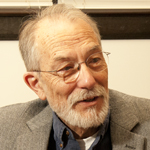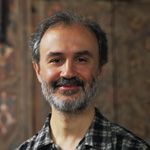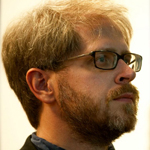Arts & Sciences starts the fall semester with a new program director and four new departmental chairs, two of whom are heading newly created and reorganized departments.
In the culmination of a two-year planning process, the Department of Asian and Near Eastern Languages and Literatures (ANELL) and the programs in East Asian Studies (EAS) and Jewish and Islamic Studies (JINES) have been reorganized into two full-fledged departments.
The new Department of Jewish, Islamic and Near Eastern Languages and Cultures (JINELC) will focus on Arabic, Hindi, Hebrew and Persian, as well as Jewish and Islamic Studies, while the new Department of East Asian Languages and Cultures (EALC) will focus on Chinese, Japanese and Korean. The shift is intended to establish more cohesive communities in each concentration where specialists in language, literature, history and culture can interact more easily and explore common interests.
“The advantage of splitting these areas into two departments is that it allows us to see more clearly what each part of the whole has in common with the other,” says new EALC Chair Robert E. Hegel, PhD, professor of Chinese language and literature and the Liselotte Dieckmann Professor of Comparative Literature in Arts & Sciences.
“The reorganization should make it easier for students and faculty from across campus to access information about our courses, conferences, events and other programming,” Hegel says. “We hope the new departments will serve as common gathering places for people who share our interest in the languages and literature of these cultures, whether they be a faculty member in history, art history, anthropology or film and media studies, or a student in engineering or business with international career interests.”
Ahmet Karamustafa, PhD, professor of history and of religious studies, and the new chair of JINELC, says the department is in the process of developing its governance documents, and pondering whether the new department will push ahead with the creation of its own doctoral program.
“We’re hoping that the reorganization will allow us to streamline and enhance our already strong undergraduate and master’s programs in these areas, but also pave the way for the possibility of building a nationally recognized PhD program in the areas of Jewish, Islamic and Near Eastern studies, with a special focus on the languages and textual traditions that exist in these cultures.”
Washington University created its first department in Asian subjects in the 1960s under the direction of Stanley Spector, PhD, a respected scholar of Chinese studies who had taught at the university since 1955.
“The Department of Chinese and Japanese was founded with Stanley as chair in 1964, and went on that way until the middle ’80s when there were obvious interests in developing Near Eastern studies as well, especially Arabic,” Hegel says.
“We had a Hebrew program that was not that strong, at that time, yet there was growing student interest, and so the dean of Arts & Sciences decided to establish a broader department, and so in 1985, we established the Department of Asian and Near Eastern Languages and Literatures. And we grew very successfully to the point where we had seven languages and hundreds of students and about 35 faculty people.”
WUSTL has offered doctorates in Chinese or Japanese and comparative literature since the mid-1970s and it began offering language and literature doctorates in Chinese and Japanese in 2010.
Although the university has graduated doctoral students with specializations in Jewish, Islamic and Near Eastern topics, these students have been based in doctoral programs of other departments, such as history, anthropology or comparative literature.
Discussions aimed at reorganizing and streamlining these offerings began about two years ago in a process led by Arts & Sciences Dean Gary S. Wihl, dean of the faculty of Arts & Sciences, and the leadership of the related study areas: Fatemeh Keshavarz, PhD, professor of Persian language and of comparative literature and then chair of ANELL; Pamela Barmash, PhD, associate professor of Hebrew bible and biblical Hebrew and then-director of JINES; and Lingchei Letty Chen, PhD, associate professor of modern Chinese language and literature and then director of the East Asian Studies program.
JINELC now offers undergraduate majors and masters degrees in Arabic, Hebrew, Persian languages and in Jewish and Islamic studies. It has nine tenure-track faculty and six language instructors. EALC has nine tenure-track faculty and 13 language instructors.
Demand for foreign language classes offered in both departments remains strong from students across campus, with nearly 300 students currently enrolled in Chinese. Other student enrollments include about 80 in Arabic, 70 in Japanese, 50 in Korean and 50 in Hebrew. Broad introductory “civilization” courses are popular too, with more than 100 in the China course, 80 in Japanese and 60 in Korean civilization.
Additional information on the new departments is available at their web sites: JINELC (http://jinelc.wustl.edu) and EALC ( http://ealc.wustl.edu)
The new department heads
In addition to Hegel and Karamustafa, the new Arts & Sciences chairs and program directors, effective July 1, 2011, are:
Lutz Koepnick, PhD, professor of Germanic languages and literatures, of film and media studies and of comparative literature, succeeds Stephan Schindler, PhD, also a professor of Germanic languages and literatures, of film and media studies and of comparative literature, as chair of the Department of Germanic Languages and Literatures.
Ron Mallon, PhD, associate professor of philosophy, succeeds John Heil, PhD, professor of philosophy, as director of the Philosophy-Neurosciences-Psychology (PNP) Program.
James Spriggs, PhD, the Sidney W. Souers Professor of Government, succeeds Andrew Martin, PhD, professor of political science and of law, as chair of the Department of Political Science.
Robert E. Hegel, PhD

Hegel
Hegel, professor of Chinese and the Liselotte Dieckmann Professor of Comparative Literature, is a specialist in Chinese narrative literature of the late imperial period.
He joined the faculty in 1975 after earning graduate degrees at Columbia University in New York. He regularly teaches surveys of literature and culture and advanced courses and seminars in fiction and theater.
He edited the essay collections Writing and Law in Late Imperial China (2007, with Katherine Carlitz) and Expressions of Self in Chinese Literature (1985, with Richard C. Hessney). His monographs are Reading Illustrated Fiction in Late Imperial China (1998) and The Novel in Seventeenth-Century China (1981).
His most recent book is True Crimes in Eighteenth-Century China: Twenty Case Histories (2009), translated from case reports held in the Qing imperial archives in Beijing.
Ahmet T. Karamustafa, PhD

Karamustafa joined WUSTL as assistant professor of Turkish language and literature in 1987 and was promoted to associate professor of Islamic thought in 1994 and professor of history and of religious studies in 2007.
His expertise is in social and intellectual history of medieval and early modern Islam, in particular Sufism, in the Middle East and Southwest Asia as well as in theory and method in the study of religion.
He is the author of God’s Unruly Friends (1994), a book on ascetic movements in medieval Islam, and Vahidi’s Menakıb-ı Hvoca-i Cihan ve Netice-i Can (1993), a study of a 16th-century mystical text in Ottoman Turkish.
More recently, he completed a comprehensive historical overview of early Islamic mysticism titled Sufism: The Formative Period (2007). He also published some 30 journal and encyclopedia articles as well as book chapters. Currently, he is at work on a medieval Sufi history, titled The Flowering of Sufism.
At WUSTL, Karamustafa has held several administrative positions, including a five-year term as director of the Religious Studies Program (2000-05). He served as vice president of the American Research Institute in Turkey (2006-08), and since fall 2008, he has been co-chair of the Study of Islam Section at the American Academy of Religion.
Karamustafa completed his bachelor of arts in philosophy at Hamilton College in 1978 and earned his master’s and doctoral degrees from the Institute of Islamic Studies at McGill University in 1981 and 1987.
Lutz Koepnick, PhD

Koepnick joined WUSTL as an assistant professor of German in 1994 and was named associate professor of German and of film and media studies in 2000 and professor in 2005.
Koepnick has published widely on German literature, film, media, visual culture, new media aesthetic, and intellectual history from the 19th to the 21st century. His most recent book is Framing Attention: Windows on Modern German Culture (2007).
His current projects include: On Slowness: Toward an Aesthetic of Radical Contemporaneity, a project exploring different strategies of deceleration in various media of 20th- and 21st-century artistic practice; and Notes on the Long Take: Toward a Wondrous Spectator, a book investigating the representation of time and duration in international art cinema and video art.
Koepnick has received numerous awards and fellowships such as the DAAD Prize for Distinguished Scholarship in the Humanities (2002); two research grants from the Alexander von Humboldt Foundation (2004, 2008); and the Outstanding Faculty Mentor Award from the Graduate School of Arts & Sciences (2006).
This past summer, Koepnick taught the XIV Fulbright Summer School in the Humanities at Moscow State University, Russia, under the auspices of the Fulbright International Scholar Program.
Koepnick completed his undergraduate work at the universities of Hamburg (Germany) and Uppsala (Sweden) with a focus on political science, German literature and philosophy. He earned a master’s degree in German literature from WUSTL in 1990 and a joint doctoral degree in German studies and humanities from Stanford University in 1994.
Ron Mallon, PhD

Mallon
Mallon earned a doctorate in philosophy from Rutgers University in 2000. He spent 2001-03 as a research assistant professor at Hong Kong University and 2005-06 as a visiting fellow at the Princeton University Center for Human Values. He joined the philosophy department at the University of Utah in 2006.
His research interests include naturalistic philosophy, the relationship of culture and the mind, and social constructs, especially race. His philosophical work is concerned with the attempt to use the naturalistic tools of a philosopher of mind to understand things we understand less well, including: meaning, the mind, culture, norms, social categories and conventions.
He is known for his research on ethical and moral issues using the techniques of experimental philosophy, a broad movement in philosophy that involves philosophers and psychologists using mostly the techniques of experimental psychology, cognitive psychology and social psychology to address questions that have been traditionally of interest to philosophers.
He currently serves as editor of the naturalistic philosophy section for Philosophy Compass.
James Spriggs, PhD

Spriggs joined WUSTL in 2006 as a professor of political science and as a fellow in the Center for Empirical Research in Law. In 2009, he was named the Sidney W. Souers Professor of Government.
Spriggs’ research interests include American politics, empirical legal studies, judicial process and politics and the U.S. Supreme Court. Much of his research focuses on explaining the dynamics of appellate court decision-making and impact.
Spriggs co-authored two books: The Politics of Precedent on the U.S. Supreme Court (2006) and Crafting Law on the Supreme Court: The Collegial Game (2000), winner of the C. Herman Pritchett Award for the best book published on law and courts, which was presented by the American Political Science Association Law and Courts Section.
In addition, his articles have appeared in such scholarly journals as the American Political Science Review, American Journal of Political Science, Journal of Politics, Political Research Quarterly, Law and Society Review, American Politics Quarterly, Perspectives on Politics and Political Analysis, among others.
He is the recipient of numerous grants, including two from the National Science Foundation. In 2009, he won the Outstanding Faculty Mentor Award at WUSTL.
Spriggs earned a bachelor’s degree from Westminster College in 1989 and master’s and doctoral degrees from Washington University in 1991 and 1994 – both in political science. Prior to joining WUSTL, Spriggs served as a professor of political science at the University of California, Davis.